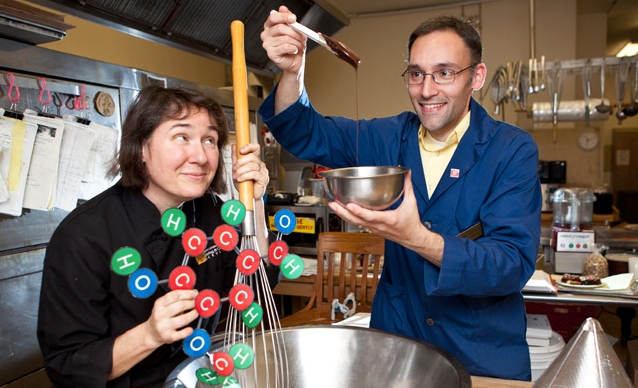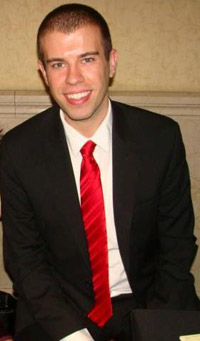Page 308 • (3,619 results in 0.053 seconds)
-
Human Experience (Topic: The Experience of War) PHIL 224: Military Ethics POLS 332: International Conflict Resolution other courses approved by the professor of military science Military Science (MILS) - Undergraduate) MILS 101 : Introduction to Military Science An introduction to the United States Army. Includes an introduction to military science and its organization, leadership, land navigation, map reading, operation orders, and the traditions of the United States Army. Provides a look at the
-
that children are still heavily targeted and harmed throughout the world as a result of war, human trafficking, unaddressed poverty and other injustices.”Learn more about the Children's Voices, The Holocaust and Beyond conferenceSee video from the Eighth Annual Conference 2014 Powell-Heller Conference for Holocaust EducationThe Seventh Annual Powell-Heller Conference for Holocaust Education: The conference highlighted the newly-approved Holocaust/Genocide Minor at PLU, Washington State Holocaust
-

, mentoring support, and an applied project, M.S. candidates develop the knowledge and skills they need to become effective evidence-based practitioners who can enhance their own career while positively impacting those they serve.You can request more information or start your application today. We look forward to helping you achieve your career goals.Download PLU’s digital resource: The Science of Human Activity – A Guide to a Master’s Degree in Kinesiology.Request InformationContact us to get more
-
Frequently Asked QuestionsWhat are the average GPA and GRE scores for admitted students for the ELMSN pathway?Average Cum. GPA: 3.4-3.6 Average Prerequisite GPA: 3.5-4.0 Please note: The GRE is now optional Average GREs of admitted students before GRE requirement change: Verbal: 155 (145-165) Quantitative: 153 (145-161) Analytical Writing: 4.5 (3.5-5.5) What are the grade and timeline requirements for the prerequisite courses?Minimum grade of 3.0/‘B’ in each course: Human Anatomy & Physiology I
-

assembling nanomaterials – materials that are less than one thousandth of the diameter of a human hair – into powerful state-of-the-art lithium ion batteries. Here at PLU, he continues to use nanomaterials to store energy in flexible and lightweight paper electrodes. Throughout his career he’s worked with more than 20 students on student-faculty research projects. Lytle’s true calling is sharing his passion for the sciences with students. His teaching philosophy is that chemistry doesn’t have to be
-

with the dialogue center. Their article, entitled, “Definition, Necessity, and Nansen: Efficacy of dialogue in peacebuilding,” was recently the leading article in Conflict Resolution Quarterly. “We’ve done so many research projects together,” Feller said. “He’s a very valuable colleague…as well as just a very supportive human being in general.” Franke agrees. She was Ryan’s speech and debate coach while he was at PLU, and remembers Ryan as a fun and dedicated student. “One thing that is quite
-

-Americans, Muslims and Latinos. For Torvend, this activist spirit and his farewell lecture connect back to PLU’s mission. Robert Oelbermann “I think part of our educational mission is to promote human and ecological flourishing,” Torvend said. “And that means constant work and constant organizing.” And there is more work ahead for Torvend. Although he is stepping down as Lutheran Studies chair, he will continue to teach, finish a few books and his screenplay, which is all about — you guessed it
-

, Spokanasaurus Rex.Yes, you read that right. In addition to parenting her daughters, all younger than 12, Caprye spends time in Spokane, Washington, parks, playgrounds and even lakes in a human sized, inflatable Tyrannosaurus rex costume. “I think it’s fun to give people a crazy experience that makes them smile and kind of bonds people together,” Caprye said. “Because everybody who is there is like ‘did you just see that?’” Caprye started Spokanasaurus Rex in April. She brings the suit when she’s out with
-

for Vocation? The Wild Hope Center started from a Lily Grant that PLU received in 2003 to promote discussions and reflection about vocation at the university. Vocation is an important Lutheran concept, having to do with meaningful and purposeful work aimed at the common good and human flourishing, and we believe this concept has rich value within and beyond our religious tradition. Since its founding, the Wild Hope Center for Vocation provides resources and events about vocation for students
-
information only. Additional information is available in Human Resources. In the event of any question, official plan documents, university policy/procedure, and legal requirements/considerations will prevail. These documents do not describe the university’s 403(b) Retirement Plan. Conditions and rules applicable to participation (eligibility), vesting, participant and university contributions, Plan investments and payout of benefits are described in and controlled by the Plan, Plan investment documents
Do you have any feedback for us? If so, feel free to use our Feedback Form.


